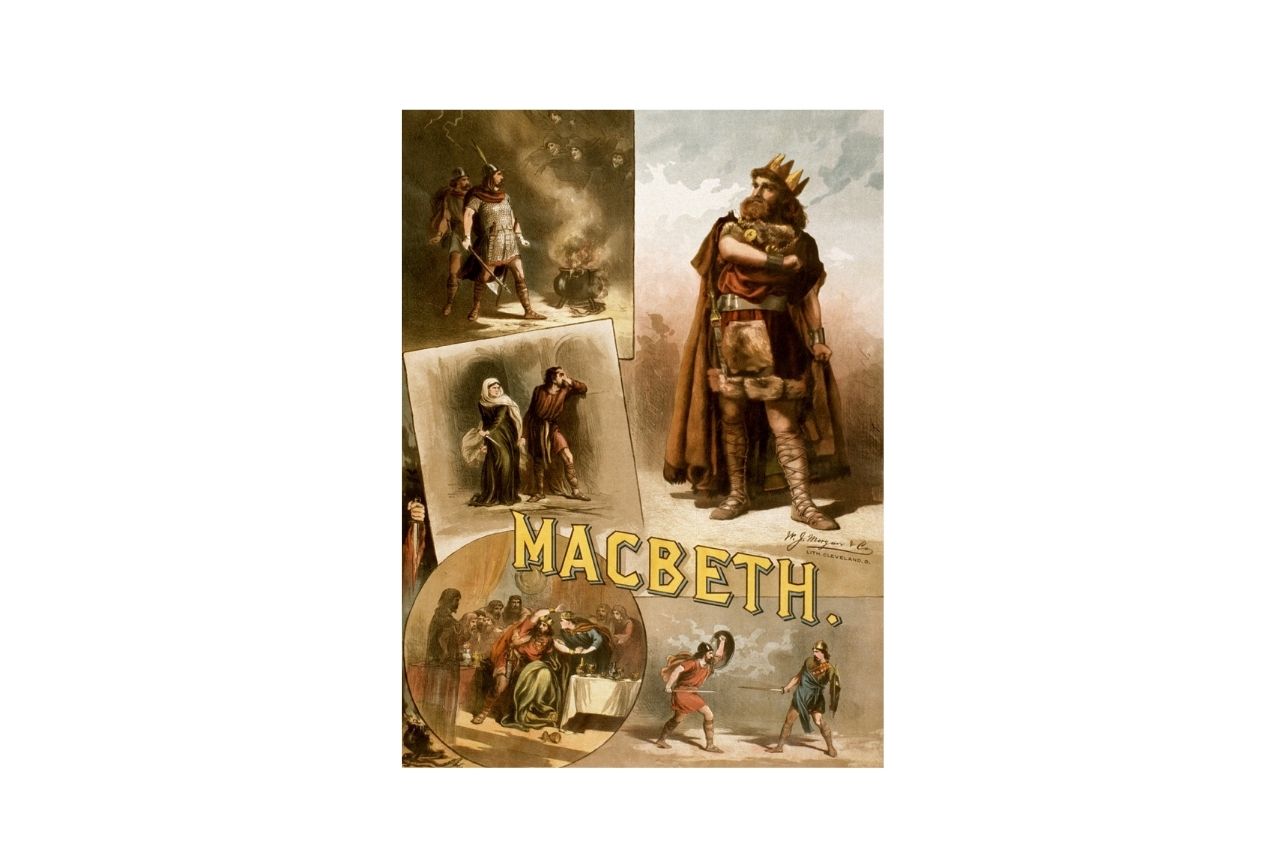
The dramatic irony in Macbeth is the fact that all of his plans are undone by events he himself set into motion. The characters start out with intentions to kill their king, which results in a chain of tragic events and misdeeds.
The “verbal irony in macbeth” is a type of dramatic irony that happens when the audience knows more than the characters. This is because the audience can hear what is happening but the characters cannot.
When King Duncan fondly hails Macbeth as his “worthiest relative” and praises Macbethfor his courageous efforts in combat in Act 1, Scene 4, Shakespeare employs dramatic irony. He is also looking forward to traveling to Inverness and dining with Macbeth and his wife.
What function does theatrical irony play in Macbeth in this regard?
In Act 1, Scene 4, of Macbeth, the clearest example of dramatic irony comes when Duncan says he trusts Macbeth, and the audience knows that Macbeth is hoping to become king. When the audience understands something that the protagonists don’t, it’s called dramatic irony.
Also, in Macbeth, what is an example of irony? Macbeth’s assassination of Duncan to seize the throne, thinking solely of the power and fortune he would have as the new King ofScotland, is an excellent example of situational irony. Macbeth, on the other hand, cannot relish any aspect of his new status after killing Duncan and being king.
What is the dramatic irony in Macbeth Act 3 in this light?
Dramatic irony happens when the audience is aware of something that is occurring but the protagonists/actors are unaware of it. Given that the first part of the witches’ prophecy came true, Banquo suspects Macbeth of being responsible for Duncan’s murder in Act 3, Scene 1.
What is the theatrical irony in Act 1 Scene 4 of Macbeth?
“Thane of Cawdor!” says thewitcheshail Macbeth in Act 1 Scene 4, line 50. Dramaticirony: Macbeth is unaware that the king has bestowed this honor upon him as a result of his valor in battle, so he blames his good fortune on the witches’ prophecy.
Answers to Related Questions
In Macbeth, how does theatrical irony add to the suspense?
As previous editors have pointed out, dramatic irony happens when the audience knows more than the actors onstage, and it’s a great way to build tension. When the audience is aware that a character is about to fall into a trap, the tension level skyrockets.
Which scenario best exemplifies dramatic irony?
C is the circumstance that most exemplifies dramatic irony. As he reveals his yearning to meet her again, a talk-show audience is aware that a man’s first love is hiding backstage. Dramatic irony occurs when the audience is aware of something that the character is unaware of.
Which of the following is an example of dramatic irony?
When the audience (of a movie, play, etc.) knows something about a character’s actions or an event, but the actors do not, Dramatic Irony occurs. Dramatic Irony Examples: 1. In a horror movie, a girl hides in a closet where the murderer has just gone (the audience knows the killeris there,but she does not).
In Macbeth, how does Shakespeare employ irony?
The irony in William Shakespeare’s play Macbeth heightens the tension and deepens our comprehension of the characters. Shakespeare used dramatic irony, or when the audience knows something that the characters don’t, to highlight the inadequacies in the other characters’ comprehension of Lady Macbet and Macbeth.
What do the witches say about Banquo’s future?
Macbeth and Banquo gotovisit the witches in Act I, scene iii. During this encounter, the three witches give the prophesy that Banquo’s sons would be kings. “Lesser than Macbeth, and greater,” says Thefirstwitch. (Scene iii, Act I) “Not so joyful, but lot happier,” replies the second.
In Macbeth, what are the symbols?
Good and evil are represented by light and darkness, respectively. Macbeth’s and his wife’s remorse over Duncan’s death is symbolized by blood. The cleansing of the conscience is symbolized by water. In Macbeth, these symbols effectively portray the ominous theme of murder.
What is a Macbeth motif?
In a tale, a motif is a recurrent element, incident, concept, or subject. A motif is utilized to create a certain atmosphere or theme. Shakespeare uses themes throughout Macbeth’s tragedy to accentuate specific concepts and to bring out essential components for us, the audience, to comprehend and examine.
What are Macbeth’s main themes?
Themes
- Unchecked Ambition’s Corrupting Power The play’s central theme—the devastation done when ambition is unfettered by moral constraints—is most powerfully expressed in the play’s two major characters.
- Cruelty and Masculinity: What’s the Connection?
- The Difference Between Tyranny and Kingship
- Ambition.
What is the theatrical irony in Macbeth’s regret?
Because you know Banquo’s ghost is already at the dinner, even though Macbeth has not yet seen it, Macbeth’s sorrow is an example of dramaticirony in this play. You’re also aware that Macbeth murdered Banquo early in the play. Her reply indicates that she is concerned that he may conduct another murder.
In his chat with Banquo, what does Macbeth say that is theatrical irony?
Duncan, for example, is about to be slain in Act 2, but he has no idea! Another example is Banquo and Macbeth’s dialogue, in which Banquo is unaware that Macbeth is planning his murder.
What is the scene’s dramatic irony?
Dramatic irony occurs when the audience of a play knows knowledge that the actors on stage do not. The audience already knows who the offender is in the instance of the messenger informing Creon that his decree has been breached and that someone has buried Polyneices.
Why does Banquo’s ghost quiet have such dramatic power?
Ghosts are dramatic because they assist to create an ominous atmosphere and hold the audience’s attention. The sight of Banquo’s ghost is also useful as a sign of Macbeth’s mental instability. The staging of ghost situations is critical since they may easily turn ridiculous.
What is the definition of situational irony?
Situational irony is a literary technique that may be seen in a variety of works. Simply put, it arises when there is a discrepancy between what people anticipate to happen and what actually does.
What exactly is the point of dramatic irony?
When the audience is aware of what is going on in a scene, but the characters are unconscious of it, dramatic irony arises. Because of this knowledge, the characters’ words and actions take on a new significance. This may either produce a sense of dread or a sense of humour.
What is ironic about Lady Macbeth and Duncan’s conversation?
She flatters the monarch, telling him that he is honored to be invited to her court. LadyMacbeth is even referred to as a “Fair and noble hostess” by King Duncan. Because the audience is aware that Lady Macbeth is planning King Duncan’s murder, this scene is an example of theatrical irony.
In Macbeth, why does Shakespeare utilize personification?
Personification is a technique used by authors to let readers identify with a lifeless thing. William Shakespeare uses personification in his playMacbeth to create a better vision of both the exterior and interior fights that the characters face.
In Act 1 Scene 3, what do the witches tell Banquo?
Macbeth and Banquo meet the three witches in theheathnear the battlefield in Act 1, Scene 3. The witches predict that Macbeth will become Thane of Cawdor and, ultimately, King. Macbeth is not convinced. The Thane of Ross, however, enters and informs Macbeth that he is the Thane of Cawdor.
The “dramatic irony in macbeth act 1, scene 3” is the moment when Macbeth decides to kill Duncan and then he gets killed by his own wife. This moment is a prime example of dramatic irony because it shows that what’s happening on stage isn’t what the audience expects to happen.






